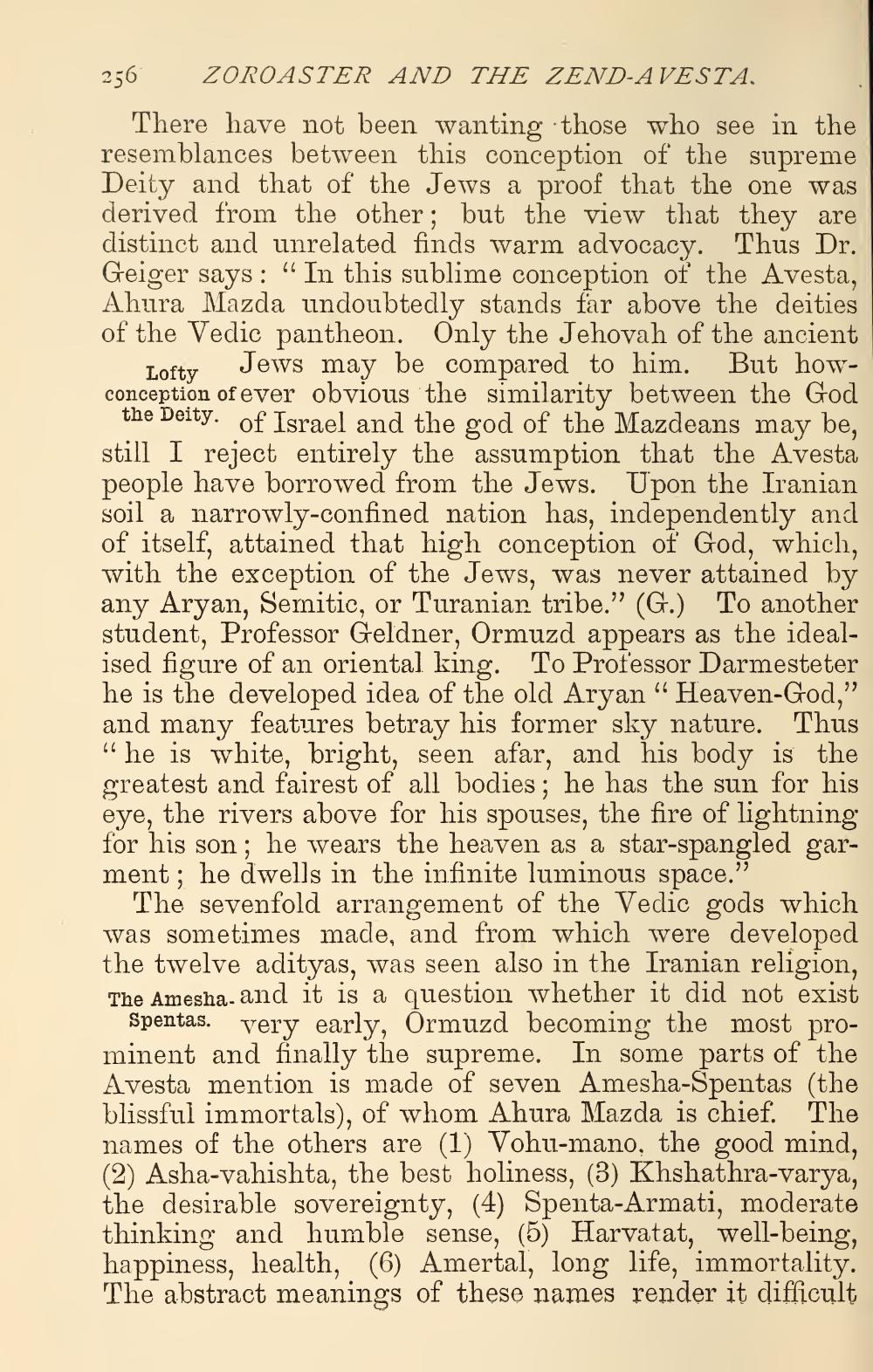________________
256 ZOROASTER AND THE ZEND-AVESTA.
There have not been wanting those who see in the resemblances between this conception of the supreme Deity and that of the Jews a proof that the one was derived from the other; but the view that they are distinct and unrelated finds warm advocacy. Thus Dr. Geiger says: “In this sublime conception of the Avesta, Ahura Mazda undoubtedly stands far above the deities of the Vedic pantheon. Only the Jehovah of the ancient
Lofty Jews may be compared to him. But howconception of ever obvious the similarity between the God
the Deity. of Israel and the god of the Mazdeans may be, still I reject entirely the assumption that the Avesta people have borrowed from the Jews. Upon the Iranian soil a narrowly-confined nation has, independently and of itself, attained that high conception of God, which, with the exception of the Jews, was never attained by any Aryan, Semitic, or Turanian tribe.” (G.) To another student, Professor Geldner, Ormuzd appears as the idealised figure of an oriental king. To Professor Darmesteter he is the developed idea of the old Aryan "Heaven-God," and many features betray his former sky nature. Thus “he is white, bright, seen afar, and his body is the greatest and fairest of all bodies, he has the sun for his eye, the rivers above for his spouses, the fire of lightning for his son; he wears the heaven as a star-spangled garment; he dwells in the infinite luminous space."
The sevenfold arrangement of the Vedic gods which was sometimes made, and from which were developed the twelve adityas, was seen also in the Iranian religion, The Amesha and it is a question whether it did not exist
Spentas. very early, Ormuzd becoming the most prominent and finally the supreme. In some parts of the Avesta mention is made of seven Amesha-Spentas (the blissful immortals), of whom Ahura Mazda is chief. The names of the others are (1) Vohu-mano, the good mind, (2) Asha-vahishta, the best holiness, (3) Khshathra-varya, the desirable sovereignty, (4) Spenta-Armati, moderate thinking and humble sense, (5) Harvatat, well-being, happiness, health, (6) Amertal, long life, immortality. The abstract meanings of these names render it difficult




